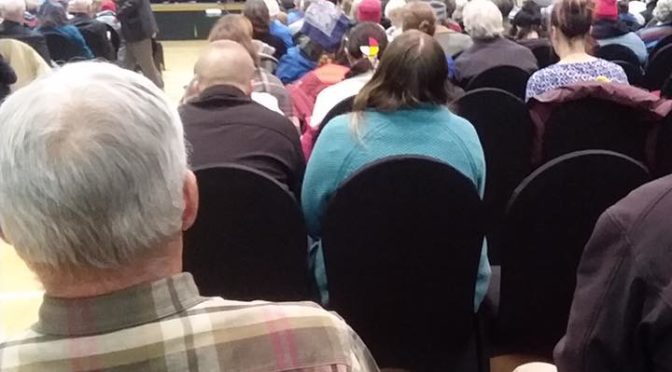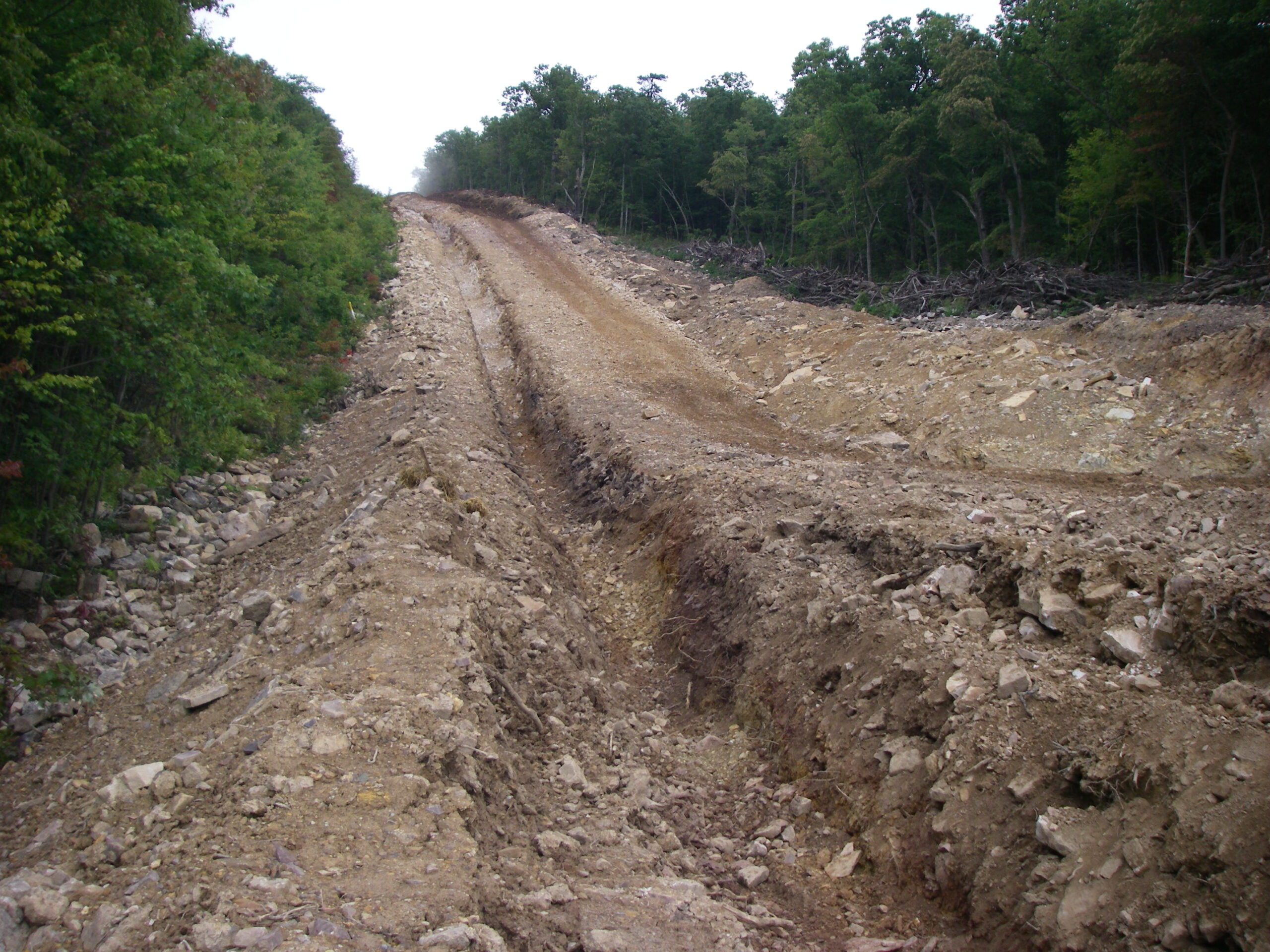
What Did the State Water Control Board Do?
by David Sligh for Wild Virginia and the Dominion Pipeline Monitoring Coalition
After the Virginia State Water Control Board (Board) decisions about the Mountain Valley Pipeline (MVP) and the Atlantic Coast Pipeline (ACP) uncertainties and confusion remain. We thought we’d give you our best explanation as to what happened and what might come next. Before getting into the details of each case, we’ll give you what we believe to be the important headlines from the Board meetings:
⇒ The State Water Control Board recognized what citizens have said for months – that it did not have all of the information to support final approvals and felt it necessary to reserve authority for future actions.
⇒ However, the Board acted illegally by issuing certifications without all of the information needed to ensure water quality protections. We will continue, without any letup, to challenge those actions and push for rejection of both pipelines.
⇒ We must all recognize and take pride in the fact that the members of the Board acknowledged that the DEQ’s story was not correct or complete and that we made that happen!
Mountain Valley Pipeline
The Water Control Board addressed the MVP on December 7. The Board issued a water quality certification for the MVP, with 5 members in support and 2 members opposing the action. The Board heard much testimony describing the large body of information and analyses that was missing. That should have prevented the Board members from making the required finding – that if the project goes forward there is a reasonable assurance that Virginia’s water quality standards won’t be violated.

This missing information includes details about impacts at stream and wetland crossing points, which the DEQ had excluded from this process and claims will be adequately regulated under Nationwide Permit 12 (NWP 12) from the Army Corps of Engineers. Also missing are the final erosion and sediment control plans, stormwater management plans, and plans to protect wells and springs in karst areas.
What is the role of the Army Corps of Engineers?
The Corps of Engineers has not yet decided whether either pipeline can be covered under its NWP 12. Some members of the Board expressed concerns about whether that permit and a blanket certification Virginia issued for it earlier in 2017 could adequately protect our waters from these huge projects. Based on those concerns, the Board revised language in the certification with the intent to allow them to revisit the issue of waterbody crossings if or when that NWP 12 coverage is granted.
⇒ Less than 24 hours after the Board approved the certification for MVP, Wild Virginia, along with Appalachian Voices, Chesapeake Climate Action Network, and Sierra Club filed suit in the U.S. Court of Appeals for the 4th Circuit, challenging the legality of the action.
The plaintiffs are represented in the case by Appalachian Mountain Advocates. While this lawsuit moves through the court, we will be watching to see if the Army Corps of Engineers decides MVP can be covered under its NWP 12. If so, we will insist that Virginia exercise the authority it has reserved and look at individual waterbody crossings under a separate certification review.
⇒ Even though the majority of the Board approved the certification, members were clearly concerned that the review DEQ has done was not as complete and comprehensive as it should have been.
In voting for the revised version, even those Board members willing to approve recognized that they might need to and want to look at waterbody crossings in more detail even if the Corps uses its Nationwide Permit in this case.
Atlantic Coast Pipeline
The Water Control Board addressed the ACP on December 11 and 12. While we know the Board approved a certification by a 4 to 3 vote and we were able to read versions of the language in that document on screen at the meeting, we still (as of 9 a.m. on December 19th) have no official version of the certification. Therefore, it is risky to make definitive statements about the exact wording in the certification.
⇒ The Water Control Board members recognized that the deficiencies in the evidence DEQ relied on in recommending approval were indeed even greater than they had acknowledged in deliberations over MVP.
Three Board members wanted to reject the certification outright, citing the lack of adequate information and studies. The final version of the certification that was approved delays the effective date until an unspecified time in the future, after a number of additional studies and plans are submitted and approval is given (if it is given).

In the end, ACP walked away from the Board meeting on the 12th with a certification but one that does not allow it to begin construction by the end of the year, as they had planned. Projected dates for completion of the necessary studies is March or April, 2018. Dominion has asked FERC for permission to begin limited tree cutting and DEQ has given an opinion that some cutting may be allowed where the activities do not qualify as “land disturbance” under Virginia regulations. We believe DEQ does have the authority to prohibit any tree cutting that is related to the project and will advocate that view.
In the meantime, we will be pushing hard to ensure that DEQ’s reviews are adequate, that the public has a fair and open comment period, and that the Board knows of and acts on any deficiencies that remain. We will also continue to consider all legal options available to us.
Wild Virginia’s Role / What You Can Do
Wild Virginia led the effort to push the State of Virginia to do its duty under the Clean Water Act to protect our waters from these two destructive proposals. As bad as the process followed by DEQ has been, it could have been even worse.
⇒ It was our influence both behind the scenes and in public forums, combined with your voices and your support, that forced some improvements.

At the ACP hearings one Board member cited the testimony of our Conservation Director, David Sligh, as one of the deciding factors that changed his “yes” vote on MVP into a “no” vote on ACP.
We will not stop our efforts to stop these destructive projects. As we end the year, we ask that you consider giving us your support to help us be as effective as possible. Whether a new donor or a reliable supporter who sees fit to increase your contribution, we greatly appreciate any and all donations.
